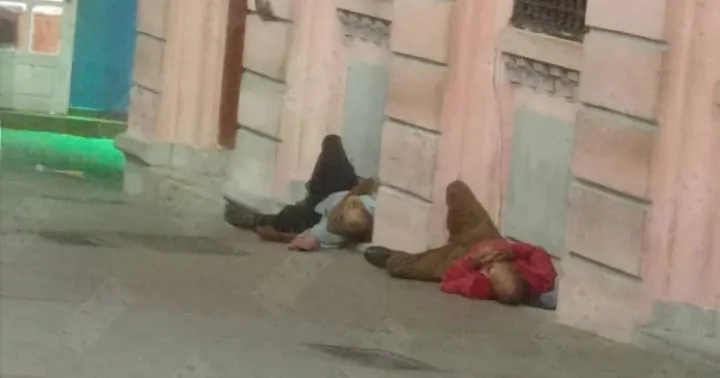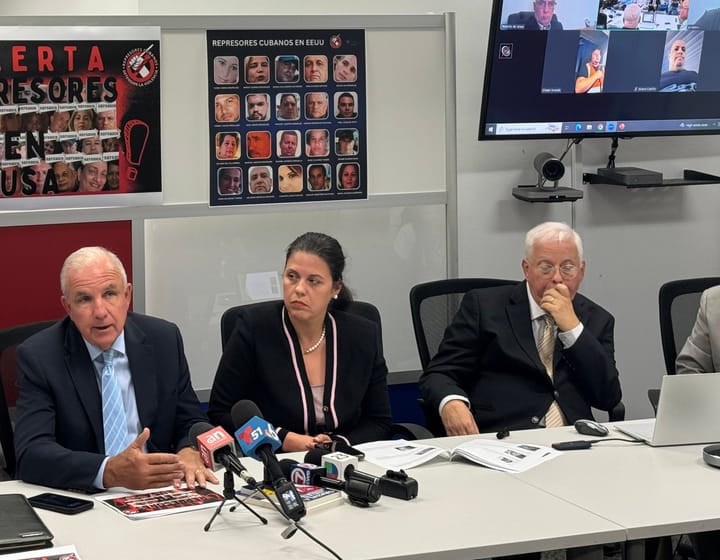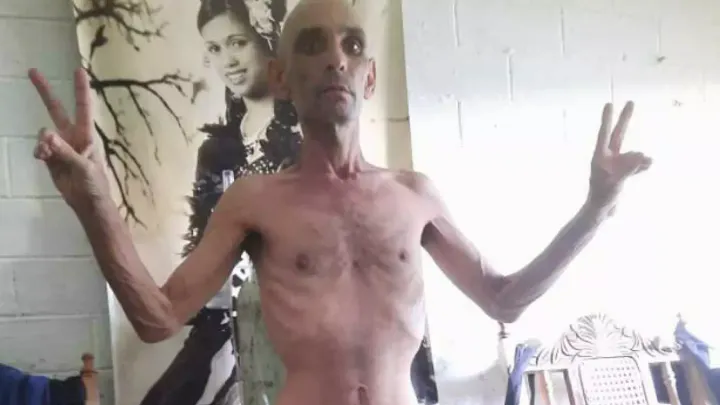The former Colombian drug trafficker Carlos Lehder recounts his meeting with Raúl Castro in Cuba.
Castro's laconic words, although they did not refer to drug trafficking, sealed the deal with the mafia boss.

The complicity between the drug lords and political leaders of Latin America and the Caribbean, particularly Cuba, were key to the rise, positioning, and expansion of the Colombian cartels in the 1980s, as described in “Vida y muerte del cartel de Medellín” (“Life and Death of the Medellín Cartel”), the book published by Penguin Random House, featuring the memoirs of one of its former bosses, Carlos Lehder.
At just 24 years old, Lehder had resources and capital beyond money, that is, education, culture, mastery of other languages, an American visa, and the ability and knowledge of how to move internationally. Nearly 50 years later, including 33 years in a United States prison, the Colombian of German father now resides in Frankfurt: “contrite, rehabilitated, law-abiding and, at last, free,” he says.
Carlos Lehder, one of the most visible figures of the Medellín cartel, reports for the first time the multimillion-dollar economic relationships they established, he and his partners, with the Governments of Cuba, Panama, Nicaragua, and the Bahamas. The leaders of these nations did not hide their hunger for dollars and their eagerness to participate to some extent in the great drug business and its benefits. The cartels bought the revolutionary complicity of Castro’s Cuba or Sandinista Nicaragua.
>Carlos Lehder reports for the first time the multimillion-dollar economic relationships they established, he and his partners, with the Governments of Cuba, Panama, Nicaragua, and the BahamasThe young narco early understood the importance of relationships with power to expand the business and extend the criminal empire through the conquest and control of territories via “drug diplomacy” and the seduction of political power. Lehder had his kingdom in the Bahamas and Pablo Escobar in Panama. Later, Nicaragua became a safer destination, much more so thanks to the emerging revolutionary Government.
For almost eight years, Lehder was the lord and master of drug trafficking in the Bahamas, according to what the Colombian magazine Semana collects from the memoirs of the former drug lord. It was the declaration of war by President Ronald Reagan against drugs that fractured his alliance with the authorities of that archipelago, just 170 kilometers from Miami. He returned to Colombia and made progress with Fidel Castro’s Cuba. In Havana, they opened the doors to him and practically rolled out the red carpet: “we need dollars,” they told him.
The Cuban power allied itself with Pablo Escobar and Gonzalo Rodríguez Gacha, alias El Mexicano, thanks to Lehder’s negotiating skill, who narrates that “the Castro dictatorship, through the intelligence agency and special operations of Havana,” extended “a formal invitation to visit the island, with all expenses paid by the Government.”
He was received on his first “business” trip by “a group of officers dressed in civilian clothes.” He recounts: “In a waiting room we met the leaders of this mission, led by Colonel Antonio de la Guardia, head of the Corporación Cimex, ‘special operations’ agency of the Castro dictatorship.”
Lehder clarified that he needed Cuba for drug smuggling and the response was swift. They opened the door for that immense business: “For now, I can only confirm that we need all the dollars we can get,” supposedly said Tony de la Guardia.
They authorized him to use “Cayo Largo, an island twenty kilometers long, with a good airstrip, located forty kilometers from the port of Cienfuegos.” The Cimex “needed to receive five million dollars in cash to cover the Government’s expenses.” In exchange, they offered him “the rooms he requires on the second floor of the hotel to reside there with his workers; in addition, we will open the kitchen. We do not know how much cocaine you will bring to the island, but the more the better; we would just have to negotiate the landed price per kilo.”
Lehder wanted a direct relationship with the Castros and asked to be introduced to Raúl, then minister of Defense. Prior to the meeting, he received instructions: “Protocol mandates strict respect for time. It is four minutes maximum for a handshake, courtesy phrase, and farewell. You will not mention your own name.”
They took away his passport, led him to a room and, after being announced, “a man with glasses who, looking at me smartly and intently, told me: ‘Pleased to meet you, welcome to free Cuba,’ greeted me and extended his cold hand with the icy gesture of the tycoon greeting a shoeshine boy,” cites Semana.
The laconic words of Raúl Castro, which apparently had nothing to do with the business, sealed the mafioso deal. “Here in Cuba we have achieved a lot of progress in education, medicine, and agriculture. Our trade is growing, despite the Yankee blockade; the Cuban Revolution is invincible. Enjoy your stay. You may leave,” is extracted from Lehder’s memoirs.
>The laconic words of Raúl Castro, which apparently had nothing to do with the business, sealed the mafioso dealMany shipments were made to the Island. Colonel De la Guardia transferred them from there to the Bahamas. Lehder maintained contacts and complicity with the political power in both places. The business flourished with direct participation from Fidel Castro’s surroundings, until the suspicions of the United States intelligence services forced the regime to suspend those operations. The dictator himself decided to prosecute and execute, in 1989, four of the officers involved, including General Arnaldo Ochoa and Tony de la Guardia.
Ten years earlier, Lehder had become interested in Nicaragua, where the Sandinista guerrilla took power, led by Daniel Ortega and supported by Havana. In Managua, they gave him the highest level diplomatic treatment. He was received by Tomás Borge, one of the nine commanders of the Revolution and powerful minister of the Interior.
Later, in 1987, Pablo Escobar betrayed Lehder and facilitated his capture by the Colombian authorities, who extradited him to the U.S. He was sentenced to two life sentences but served only 33 years after negotiating a sentence reduction in exchange for his testimony against the former Panamanian dictator Manuel Antonio Noriega in a drug trafficking trial, in 1992 in a federal court in Miami.




Comments ()